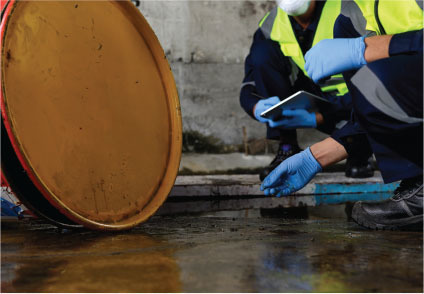May 2014
ON ETHICS: YOU BE THE JUDGE
No Work, No Pay?
A court case is settled after an expert witness receives advance pay but before he performs any services.
The Situation
Wyatt Ness, P.E., performs expert witness services in the field of structural engineering. Ness is contacted by Ian Vestgate, an attorney who is located in a foreign country, to perform a forensic engineering analysis in connection with a structural failure and perform expert witness services during an alternative dispute resolution procedure. Ness verbally agrees to perform the services and is paid an advance for those services. However, prior to performing the forensic analysis, the matter is settled. The attorney contacts Ness and requests reimbursement of the advance from Ness, less any expenses. Ness refuses to reimburse Vestgate, arguing that he was prepared to perform the services in question as stated in their verbal agreement.
What Do You Think?
Was it unethical for Ness to refuse to reimburse Vestgate for the paid advance?
What the Board of Ethical Review Said
The Board concluded it was unethical for Ness to refuse to refund the advance, less any expenses, unless the circumstances were disclosed and agreed to by both parties.
Ethical issues relating to compensation for forensic engineering services can become complicated, particularly because conflicts are sometimes rooted in the different perspectives of the engineering and legal professions. Moreover, different national perspectives can further complicate these matters, causing issues that are not easily resolved.
In this case, Ness was paid in advance for services that were ultimately never performed because the case was settled. If Ness intended to retain the advance payment in the event that the case was settled before he actually provided services for the benefit of Vestgate and his client, Ness had an ethical obligation to make his intent clear so that there would be no misunderstanding about this critical issue.
This case points to the critical importance of engineers having a detailed understanding of expectations. Doing so can help engineers avoid the misunderstandings and unmet expectations of clients that inevitably result in ethical conflicts and disputes.
Conclusion
It was unethical for Ness to refuse to refund the advance, less any expenses, unless the circumstances were disclosed and agreed to by both parties.
NSPE Code References
Section I.6: Engineers, in the fulfillment of their professional duties, shall conduct themselves honorably, responsibly, ethically, and lawfully so as to enhance the honor, reputation, and usefulness of the profession.
Section II.4.b: Engineers shall not accept compensation, financial or otherwise, from more than one party for services on the same project, or for services pertaining to the same project, unless the circumstances are fully disclosed and agreed to by all parties.
Section II.5: Engineers shall avoid deceptive acts.
Section III.6: Engineers shall not attempt to obtain employment or advancement or professional engagements by untruthfully criticizing other engineers, or by other improper or questionable methods.
For more information, please see NSPE BER Case No. 11-2.


 Volunteering at NSPE is a great opportunity to grow your professional network and connect with other leaders in the field.
Volunteering at NSPE is a great opportunity to grow your professional network and connect with other leaders in the field. The National Society of Professional Engineers (NSPE) encourages you to explore the resources to cast your vote on election day:
The National Society of Professional Engineers (NSPE) encourages you to explore the resources to cast your vote on election day:


